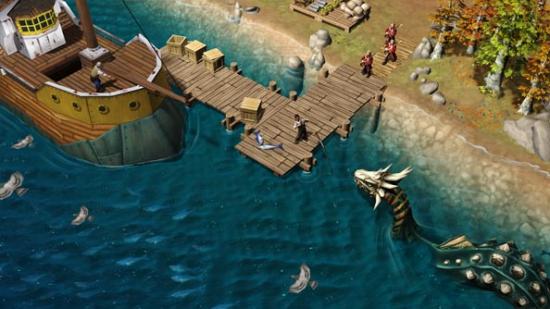Gaslamp Games have revealed a little more about how the citizens in Clockwork Empires will behave and what motivations drive that behaviour. These character traits will cause some characters to break form and break relationships more frequently or, in the case of the “fishy behaviour” trait, some characters “[m]ay occasionally take a long walk into the water, never to return.”
More below.
Clockwork Empires is the first game from Gaslamp since their exceptionally good roguelike, Dungeons of Dredmor. Though it still contains the witty writing of Dredmor, Empires is a completely different game, one of city building and nation forming. As a way of adding colour to the games population, and driving the requirements you’ll need to fulfil to maintain a merry populace, each citizen will be composed of avarietyof character traits which will inform their actions.
The examples I quoted above are for just two of the traits. Plus, as well as wandering into the sea and enteringover-activerelationships, both traits instil other qualities on those afflicted: “Obsession with the water, the sea, things aquatic, fish” and “Higher proclivity to being an artist/poet”, respectively.
Other examples of traits were:
- Foolishly Brave
- Hat Enthusiast
- Bee Fancier
- Lazy
- Doomed
The many traits that characters have to choose from decide a list of possible character actions, organised by priority. These actions are then selected by analgorithm(read: sorcery) and played out in the game.
So far so standard passive AI behaviour. The thing that MakesClockworkEmpires different from other games is that “Characters will have the ability to gain or lose traits due to traumatic/ecstatic/sublime experiences,” while also being able to “form strong attachments to things that have been important to them in their lives,” such as particular places or other characters, even items. It’s an exciting idea to think that having characters inhabit a home will develop bands between them in a way that’s far more organic than simply a binary setting of ‘in relationship with character x’ and ‘single’.
